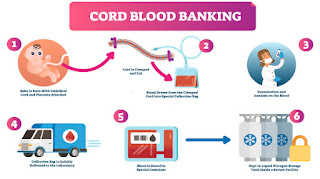
The Benefits of Cord Blood Banking The Benefits of Cord Blood Banking Cord blood banking is the process of collecting and storing the blood that remains in the umbilical cord and placenta after a baby is born. This blood is rich in stem cells, which are immature cells that have the ability to develop into different types of cells in the body. Cord blood stem cells are a promising source of treatment for a wide range of diseases and disorders, including cancer, blood disorders, and immune system disorders. 1. Potential for life-saving treatments One of the most significant benefits of cord blood banking is the potential for using cord blood stem cells to treat a variety of diseases and disorders. Cord blood stem cells have been used to treat more than 80 different conditions, including leukemia, anemia, and immune system disorders. In some cases, cord blood stem cells have even been used to regenerate damaged tissue, such as in the case of spinal cord injuries. 2. ...





